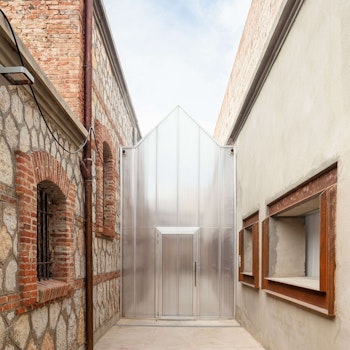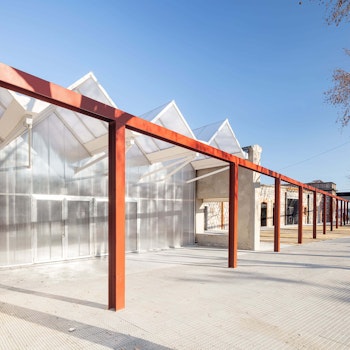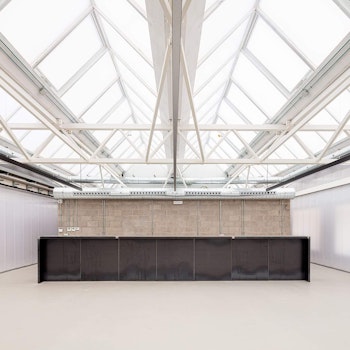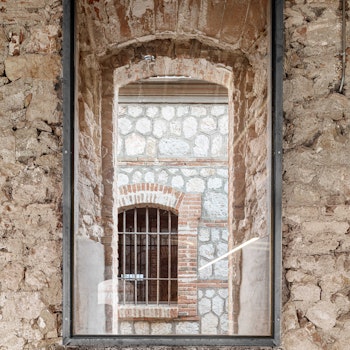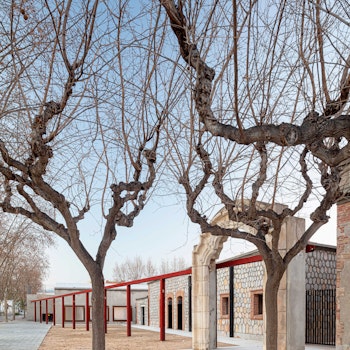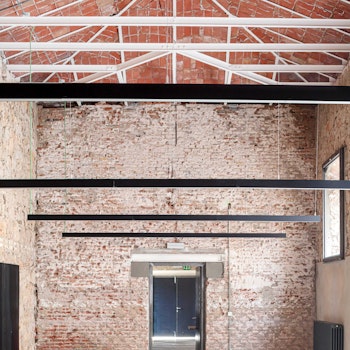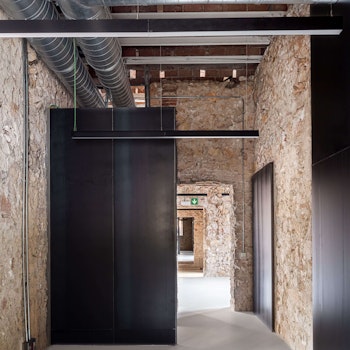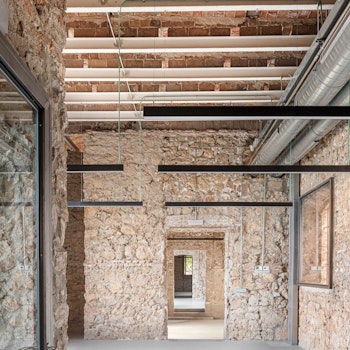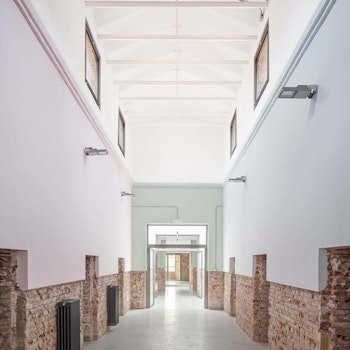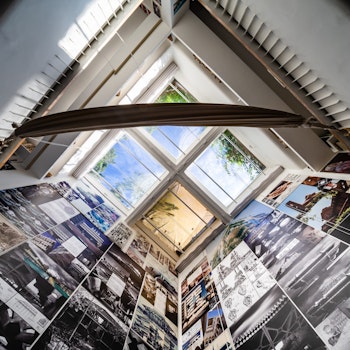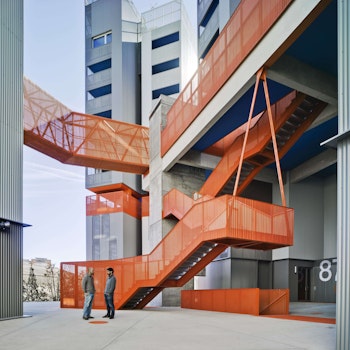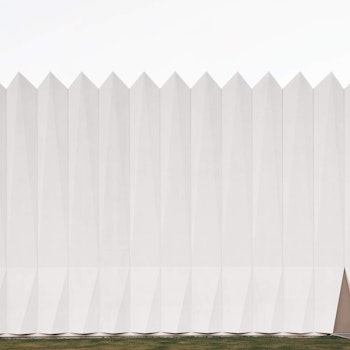ARCHITECT
JOSEP FERRANDO
El Roser Social Centre is laid out in the old prison in Reus, a building listed as a Cultural Asset of Local Interest and included in the Inventory of Architectural Heritage of Catalonia. The facility is an innovative program in Spain. It comprises a shelter for the homeless, a soup kitchen and a community space, bringing together all the social services of the city, which makes it the first comprehensive facility of its kind.
The proposal is the transformation of a transformation. The prison, built in 1929, was transformed into a school in 1979. This earlier intervention is taken as the basis for a project in which the various time strata dialogue with each other in a selection process that shows the concealed construction layers and draws attention to their various transformations. The project respects and recovers the original building, revealing its structure and the construction typology of the time, previously hidden, in order to evoke an image of austerity.
The intervention works at different scales. Firstly, a dialectic is established between the new more ethereal, light, tectonic elements, and the composition and stereotomic mineral materials of the heavier existing structure. Then the geometry of the H-shaped floor plan laid out around two courtyards is given new openings to create lines of sight and a Palladian-style permeability that marks the end of closed spaces. The interpretation, functioning and routes around the building’s interior are reassessed, as they are at urban level, changing its relation with the immediate environs.
Entrance to the prison used to be from the street via a monumental doorway with minimum pavement space, but this latest proposal eliminates the wall around the yard of the prison building, turning it into a public space, open to the city, that lets passers-by recognise the facility by the continuity of its façades. A slender steel structure is a gesture that recalls the now-absent wall, at the same time threading together three different historical periods. In turn, the conservation of the monumental doorway bears witness to the missing wall and enhances the facility’s heritage value. At a more domestic scale, elements such as windows and wet areas are introduced at a tangent, reinforcing the idea of palimpsest.
source: POCH
YOU MAY ALSO LIKE

